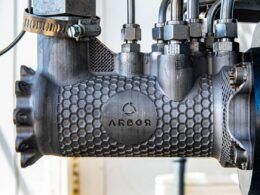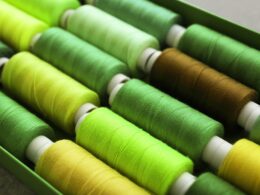Unilever has embarked on an innovative pilot project to develop fragrances for its products using unwanted plants and flowers. Collaborating with scientists from the University of Nottingham, Unilever aims to create cost-effective ingredients by repurposing plants that would otherwise be discarded.
The initiative involves extracting essential oils from petunias, roses, and marigolds. The goal is to incorporate these oils into Unilever’s home care and personal care products, including shampoos and cleaning agents. Currently, the company relies on a mix of natural and petrochemical-derived raw materials for its fragrances.
Unilever highlights that seasonal fluctuations in flower demand and quality issues result in significant waste each year. To address this, it has partnered with Bridge Farm Group in Spalding, Lincolnshire which sells 90 million plants to UK retailers annually. This collaboration focuses on storing unsold flowers in a 60-acre greenhouse, extending their viability for conversion into raw ingredients in a lab setting.
Scientists are employing an advanced version of the Soxhlet extraction method, traditionally used to extract essential oils by heating flowers in a device. This updated process, which includes ultrasonication to break down cell walls and enhance yield, reduces extraction time to just 20 minutes, making it 40% faster than conventional methods.
Neil Parry, Unilever’s head of biotechnology said, “Fragrance is an incredibly important part of our experience when we use products in our homes or on our bodies. Using the latest in biotech and biosourcing principles, we see huge potential to create a circular economy for plants by extracting valuable ingredients and creating a diverse selection of new and sustainable fragrances.”
Parry added, “Plants that don’t make the grade still have valuable materials with functional benefits and could reduce our impact on the environment. Finding multiple uses for farm waste is crucial for sustainable ingredient and product sourcing.”
Previous research from the University of Nottingham has indicated that repurposing flower waste for fragrance ingredients could lessen reliance on petrochemical components and lower emissions. Parimala Shivaprasad, assistant professor at the university, noted, “Through our collaboration with Unilever and Bridge Farm Group, we’re aiming to test the feasibility of using flower essential oils in fragrances to further decarbonise everyday products. At the labs in Nottingham, we’re developing energy-efficient extraction methods and enzyme-based modifications, while also evaluating the practicality and cost-effectiveness of using plant waste as a raw material. This project showcases the potential of cutting-edge science and technology processes to create sustainable solutions for the future.”
In addition to essential oils, Unilever is investigating the extraction of other high-value ingredients such as terpenes, lactones, and ethers for fragrance production. The company is also looking into the potential for extracting complex sugars for textile care and malodour neutralisers for personal care products, further advancing its sustainability goals.





















